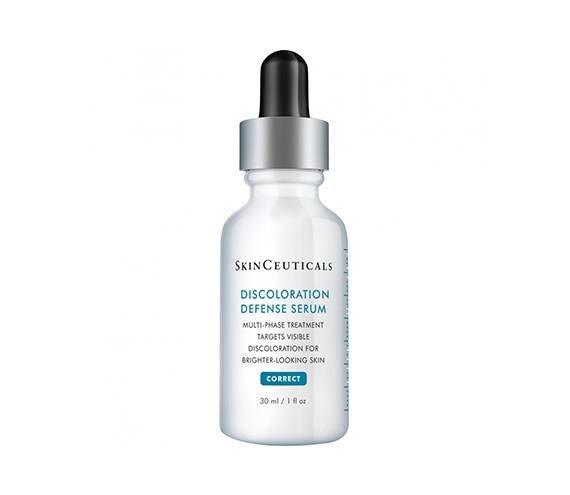Skin Discoloration 101: What Is Melasma?
February 19, 2021Melasma is a specific skin-care concern that falls under the larger umbrella of hyperpigmentation. While it is often dubbed the “mask of pregnancy” due to its prevalence amongst pregnant women, many people, pregnant or not, can experience this form of skin discoloration. Keep reading to learn more about melasma, including what it is, what causes it and how to treat it.
What Is Melasma?
According to the American Academy of Dermatology, melasma is characterized as brown or gray blotchy patches on the skin. While the discoloration is associated with pregnancy, expectant mothers aren’t the only ones who can be affected. People of color with deeper skin tones are more prone to getting melasma because they have more active melanocytes (color-producing skin cells) in their skin. And while it is less common, men can also develop this form of discoloration. It most commonly appears on areas of the face exposed to sunlight such as the cheeks, forehead, nose, chin and upper lip, but it can also appear on other parts of the body, like the forearms and neck.
How to Treat Melasma
Melasma is a chronic condition, and therefore, it cannot be cured, but you can help fade the appearance of dark spots by incorporating some skin-care tips into your routine. The first and most important is sun protection. Because the sun can cause dark spots to worsen, it’s imperative to apply a broad-spectrum sunscreen with SPF 30 or higher every day — yes, even on the cloudy days, too. We recommend the La Roche-Posay Anthelios Melt-In Milk Sunscreen with SPF 100 because it offers maximum protection and is suitable for all skin types, including sensitive.
You can also incorporate skin-care products that help to reduce the appearance of skin discoloration and even out the skin tone in general, such as the SkinCeuticals Discoloration Defense. It’s a dark spot correcting serum that can be used daily and is formulated with tranexamic acid, kojic acid and niacinamide to even out and brighten your complexion. That being said, if you aren’t noticing your spots getting lighter despite using daily SPF and a dark spot corrector, it’s best to consult with a dermatologist to discuss a treatment plan that works best for you.

Photo: Chaunte Vaughn
Read More:
Hyperpigmentation and Melasma — What You Need to Know
4 Skin Conditions That Commonly Affect Dark Skin Tones
5 Skin-Positivity Influencers Who Keep It Real With No-Makeup Selfies